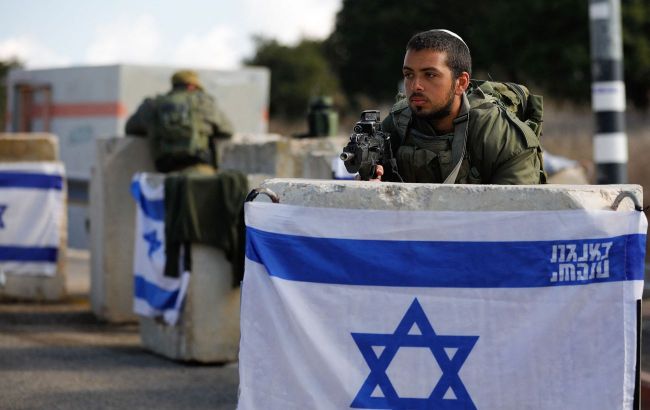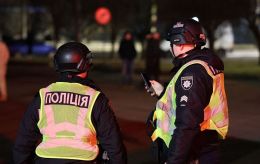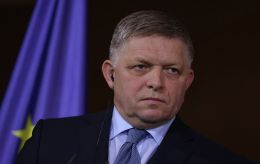Israel and Hezbollah: Has ceasefire ended conflict, and what’s next?
 Israeli soldier (photo: Getty images)
Israeli soldier (photo: Getty images)
Since this morning, a ceasefire has come into effect between Israel and the Hezbollah group.
RBC-Ukraine reports on how the parties are adhering to the ceasefire, the world’s reaction, how it may affect the war in Gaza, and whether it could lead to lasting peace.
Contents:
- Current situation in the combat zone
- International reaction
- How the ceasefire will affect the situation in the Gaza Strip
The truce between Israel and the terrorist group Hezbollah began on November 27 at 4:00 a.m. Kyiv time. It is intended to end the latest stage of the conflict between the two sides. Since October of last year, Hezbollah has carried out heavy shelling of Israel. In response, Israel launched a military operation against the group in southern Lebanon to halt these attacks.
The agreement between Israel and Hezbollah stipulates the withdrawal of Israeli forces from Lebanon within 60 days. Meanwhile, Lebanese forces are to take control of the southern region to ensure Hezbollah does not reestablish its presence there.
Current situation in the combat zone
Clashes and mutual strikes between Israel and Hezbollah continued until the final moments before the ceasefire. However, they eventually ceased.
Avichay Adraee, the Arabic-speaking spokesperson for the Israel Defense Forces, said that with the ceasefire agreement in effect and in accordance with its provisions, the IDF remains positioned and ready in southern Lebanon.
He also urged Lebanese civilians not to return to southern Lebanon just yet, adding that the IDF will announce a safe date for their return.
In the first hour following the ceasefire, however, Reuters reported seeing several convoys of civilian vehicles heading southward in Lebanon.
Israeli Prime Minister Benjamin Netanyahu held a phone call with US President Joe Biden, thanking him for his involvement in securing the agreement. Before Israel approved the agreement, Netanyahu stated that the duration of the ceasefire "depends on what happens in Lebanon”.
Lebanese Prime Minister Najib Mikati called the ceasefire a "fundamental step" toward restoring stability in the region. He also reaffirmed his government’s commitment to "strengthen the army's presence in the south."
In an interview with Al Jazeera, Lebanese Defense Minister Maurice Sleem announced that the government intends to comply with international resolutions and deploy 10,000 troops to the country’s southern border.
International reaction
US President Joe Biden and French President Emmanuel Macron stated in a joint declaration that the ceasefire would protect Israel from the threat posed by the Iran-backed Hezbollah militants and create conditions for "lasting calm."
They added that the United States and France would work to "ensure this arrangement is fully implemented" and lead international efforts for "capacity-building" of the Lebanese army.
Biden welcomed the agreement as "good news" and announced that the US would lead new efforts to secure a ceasefire between Israel and the Hamas militant group in Gaza.
Egypt also welcomed the ceasefire as "a step that could contribute to starting a de-escalation phase in the region". The country’s Foreign Ministry stated that the agreement "should be a prelude to stopping the Israeli aggression on Gaza."
China praised the truce as well. "We support all efforts conducive to easing tensions and achieving peace and welcome the agreement reached by relevant parties on a ceasefire," said Foreign Ministry spokesperson Mao Ning.
Türkiye expressed hope that the ceasefire in Lebanon would become permanent, according to a statement from its Foreign Ministry. Ankara also indicated its readiness to provide support for establishing internal peace in Lebanon.
Iran, the primary sponsor of Hezbollah, Hamas, and other groups, also welcomed the agreement, while predictably accusing Israel of "aggression." Iranian Foreign Ministry spokesperson Nasser Kanaani emphasized Tehran's strong support for the Lebanese government, people, and resistance.
How the ceasefire will affect the situation in the Gaza Strip
Parallel to its operation in Lebanon, Israel continues military actions in the Gaza Strip against the Hamas group. This operation is a response to the terrorist attack by Hamas on October 7, 2023, which resulted in the deaths of over 1,200 Israelis and the capture of approximately 250 hostages.
Several rounds of ceasefire negotiations between Israel and Hamas have yet to yield results. On November 26, US Secretary of State Antony Blinken stated that de-escalating tensions in Lebanon through a ceasefire "can also help us to end the conflict in Gaza."
"Hamas will know that it can't count on other fronts opening up in the war," Blinken said.
In response to the agreement between Israel and Hezbollah, Hamas spokesperson Sami Abu Zuhri told Reuters that his organization respects Hezbollah's right to strike a deal to protect its people.
Abu Zuhri also mentioned that Hamas is ready to agree to a ceasefire with Israel to end the fighting in Gaza and begin the return of Israeli hostages who are still alive.
However, before approving the deal with Hezbollah, Benjamin Netanyahu stated that the ceasefire would allow Israel to intensify pressure on Hamas and focus on the Iranian threat.
The sustainability of the ceasefire depends on several factors: the political situation in Lebanon, how quickly Hezbollah can regroup, the level of support from Iran, and ultimately, the policies of the new US President Donald Trump regarding the Middle East. For now, none of the underlying issues that led to the conflict’s escalation have been resolved; they are merely postponed. It is highly likely that the two-month transitional period will serve only as a temporary pause, ending just as Trump assumes presidential powers.
Regarding Trump’s potential stance, it is worth noting that, much like his views on Ukraine, he likely has his own approach to resolving the numerous conflicts in the Middle East. Active attempts to achieve lasting peace in the region, which he made during his previous term, have not actually yielded results. Thus, today’s ceasefire may serve merely as an interim stage before the onset of a new war in Lebanon, as Hezbollah militants remain committed to their fundamental goal of destroying Israel.
RBC-Ukraine previously reported on how the situation has evolved a year after Hamas’s terrorist attack on Israel.
Sources: reports from AFP, Al Jazeera, Reuters, The Times of Israel, Al Arabiya, Middle East Eye.

